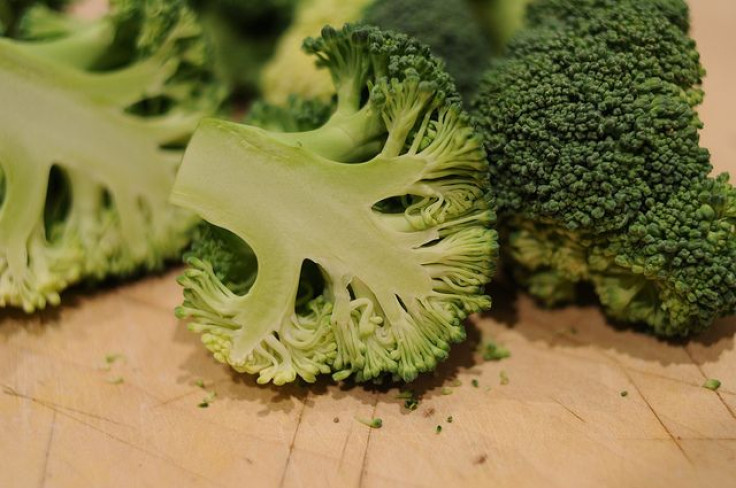Can Broccoli Prevent Arthritis? Researchers To Test Anti-Inflammatory Compound On Humans

It’s already well known that green, leafy vegetables — especially broccoli — may help fight cancer, diabetes and even heart disease. But researchers are now interested in a particular type of broccoli — referred to as "super" broccoli — and its potential ability to prevent arthritis.
Researchers from the University of East Anglia initially tested the effect of a compound called glucoraphanin on mice and cartilage cells, and are now ready to test it on humans. Glucoraphanin is found in most varieties of broccoli, but in this modified "super" broccoli, the compound, along with other nutrients, could be found in higher levels.
Researchers noted that the human body could take glucoraphanin and transform it into sulforaphane, a compound that is known to potentially have anti-cancer properties and is found in other cruciferous vegetables, like Brussels sprouts and cabbage. They noted that sulforaphane may have a positive impact on joints.
In the current study, researchers will have 20 patients eat 3.5 oz of "super" broccoli every day for two weeks, after which they will measure sulforaphane’s impact on arthritic joints at the cellular level.
"I can't imagine it would repair or reverse arthritis... but it might be a way to prevent it," Dr. Rose Davidson, who is leading the research team, said.
This particular “super broccoli” is known as Beneforte and was developed at the UK’s Institute of Food Research (IFR) and the John Innes Centre. In a previous study that was published in the American Journal of Clinical Nutrition, the IFR studied the effects of glucosinolate on metabolism by measuring the number of metabolites in volunteers after they consumed regular broccoli, and compared it to those who consumed high-glucoraphanin broccoli. Those who had consumed “super" broccoli showed an improved metabolism, reduced fatty acid levels, and a lower amount of inflammation-related lipid compounds.
"As well as treating those who already have the condition, you need to be able to tell healthy people how to protect their joints into the future,” Ian Clark, professor of musculoskeletal biology at the University of East Anglia, told Agence France-Presse.



























